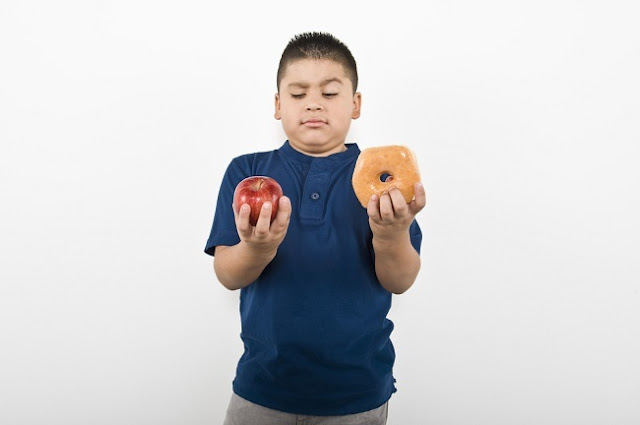Obesity is also called being overweight or overweight. Fat children sometimes make people who see it annoyed. This often makes parents feel they do not need to go to the doctor, even though obesity is also a form of malnutrition in addition to malnutrition, you know, Father and Mother.
Childhood obesity is increasing at this time. In Indonesia, almost 20% of children are obese. In developed countries, even more children are obese. Obesity in childhood has the potential to cause airway obstruction during sleep, or also called obstructive sleep apneu syndrome (OSAS), characterized by snoring sleep. Other problems that are often encountered in children with obesity are disorders of posture and bone development, skin disorders, psychosocial problems, or allergies. Obesity in childhood is also related to obesity as an adult, which has the potential to cause various diseases, such as diabetes and heart disease.
Then, what if our children are already obese?
Handling of obesity depends on the age, child development, and severity. Given that children are still growing and developing, the principle of regulating diets in obese children is a diet with balanced nutrition according to the needs of the child. In contrast to adulthood, the target reduction in weight (weight) in children with obesity is very minimal, which is only 0.5-2 kg per month, or sufficient to be maintained so as not to increase, because the growth process is still ongoing.
Pediatricians will evaluate the causes of obesity, nutritional status of children, food intake and activity of children, and the presence or absence of disease caused by obesity. Therapy (programs) to overcome obesity can be started when the child (and parents) are ready to start. The principle of handling obesity in children in general is to regulate food intake and increase physical activity of children.
Manage Childhood Obesity Food Intake
Consult your pediatrician or nutritionist to determine the appropriate intake of food according to the child's ideal body weight, which will be assessed based on height. Teach children to recognize hunger and satiety. Children should be able to distinguish between hunger in the mouth (just want) and hunger in the stomach (indeed hungry), and advise them to only eat when they feel hungry in the stomach. After that, children also have to learn to recognize feeling full, so they can stop eating even though they still want to. Father and Mother can play roles with children with themes that involve stomach sounds when hungry, and discomfort and flatulence when overeating. In addition to teaching children to recognize hunger and satiety, limiting calorie intake can be done by reducing fat and carbohydrate intake, and increasing fiber and water intake. WHO recommends intake of fruits and vegetables a minimum of 5 servings a day, accompanied by enough drinking water (drinks without taste / sugar). Here are some tips that Father and Mother can apply to limit food intake in obese children:- Eat regularly three times per day with fruit snacks (not juice) 1-2 times per day. Cut fruit such as watermelons, melons, apples, or pears are useful for substituting sweet snacks (such as ice cream, chocolate, and candy). Avoid high-calorie fruits such as manga or durian.
- Children are only allowed to drink water between meals.
- Limit the amount of high-calorie foods, such as french fries, bread, pastries, ice cream, or fruit juice.
- Not eating while playing or watching television This habit will associate the feelings of pleasure that accompany when watching television or playing, with eating. So, if one day the child feels sad or stressed, he will entertain himself by eating.
- Avoid giving food as gifts, or limiting food as punishment.
- Avoid giving fast food (fast food) or sweet foods.
- Limit milk intake to only 500 ml / day for children older than 2 years, and replace full cream milk with skim (low fat) milk.
- Get used to breakfast. Research shows breakfast with high protein levels can help you lose weight.

Comments
Post a Comment